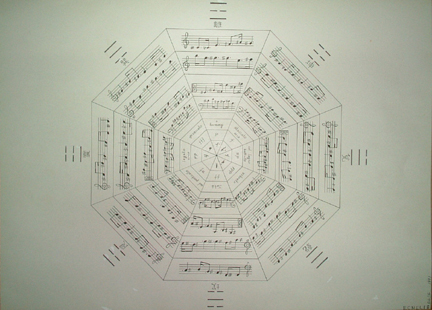O-O
Tung-Lung Lin
MetaOctoTrigram for String Quartet

One can follow the Dao (rule), but there is no eternal Dao, because the Dao is always changing.
| Resource |
Philosophy of Music Education
Date: November 8, 2002
Music is one of the four important liberal arts subjects (quadrivium four paths) since ancient Greek as addressed by Boethius (ca. 480-524) in his book, the fundamentals of music. In Greek mythology, people believe music has the power to purify the body and mind, and to work miracles in the realm of nature. This tradition was carried on in Plato and Aristotles philosophy. Plato and Aristotle believed, to be a true human being, one must study music. The tradition of western music continues to evolve following this tradition through many generations. I believe the value of music today is still true and equivalently important as other liberal arts subjects in our public education system.
According to the 20th century German philosopher, Martin Heideggers thinking, language is the house of Beings. Music is a primordial human language. The essence of music shows itself in our state-of-mindeveryday mood. Music carries the mood that let us experience the truth of human existence, even in noise and silence.
Through the study of music, one can understand oneself, uncovers ones own personality, disclose ones own wisdom, feel the morality, experience the truth and purify ones spirit. Music also could help with other subjects of studies, such as verbal arts, math and science. It could improve our abstract and multi-dimensional thinkings in related subjects. I believe music has the power to enlighten every young Americans, benefit their lives and make a strong impact to the nation.
ªL ªF Às
Living is dying;
Dying is living.
I die, therefore I am.